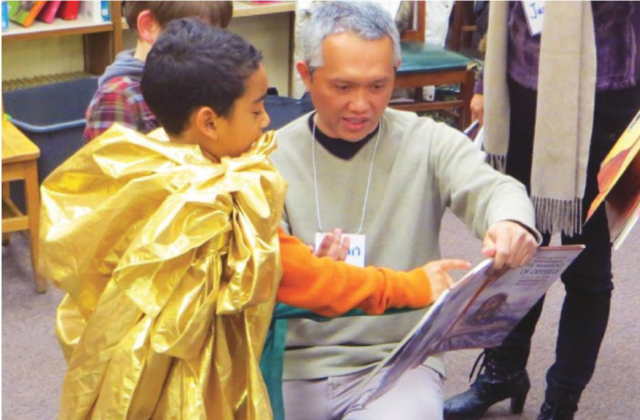My Literacy Narrative.
My Literacy Narrative
By Irfan Rifai
Irfan Rifai is a name adopted from Arabic language that means ‘wisdom / knowledge’ and ‘elevated / elevation’ respectively. My father told me that the name given to me because he wanted me to grow up being a wise and in a high social status. Well, I hope that I have not disappointed him. Arabic has been vastly used by Indonesian muslims but it rarely functions as means of communication or as a second language. It is taught to children since their early age for the purposes of praying and reading Quran. Unless we have enrolled in Islamic boarding school, Arabic language has not generally been taught or used for communication sake.
I learned to read and write in Arabic at the same time that I learned to read and write in my first language, Indonesian. As a kid, I spent my time studying at formal school from 7 am to 12 pm and had an informal Quranic school where I learned Arabic literacy until 4 pm. With such a busy schedule of schooling, I still wonder what went wrong that I was only capable of reading both in Arabic and Indonesian only when I was in my 2nd grade. Was it that I was too young to enter elementary school? I was registered at elementary school when I was only 5 years old because there was no kindergarten at the time and place where I lived as a young boy. Was it the methods that my teacher used ? or was it that I did not have enough exposures to print or reading habits in the family?
To answer those questions, I would like to revisit my childhood. I have an illiterate mother and a father who had to drop school at the age of 14. My father was always busy working and my mother simply did not know how to teach me. Hence, I heavily relied on my teachers at school to teach me to read and write. My first and second grade teacher was Ms. Djuria. She taught us to read by having us memorize the alphabets and then got us to practice by putting them in words. She did not introduce the Alphabet song, nor used any sophisticated approaches, or tools to teach. One thing I remember fondly about her was her patience in guiding and teaching me (us) how to read and write, letter by letter, despite my playful nature as a five year old.
Due to the lack of facilities and resources, other than a couple of notebooks that we brought to school, no books were used to motivate or to inspire us to read. Reading, for me, as soon as I managed to decode the writing symbols in both Arabic and Indonesian, was just an activity of “sounding the words and sentences” without having to worry about their meanings. So, I grew up having no real reasons or sense of objectives / purposes to read.
When I was in fourth grade, a neighbor opened up a comic kiosk and rental. To me it was a defining moment because I feel my attitude to reading dramatically changed ever since. I visited the kiosk almost every day and spent all my pocket money renting their collections. Unfortunately, due to the lack of the costumers, the kiosk had to close only two years after its establishment. As a teenager, I received a lot of influence from my peers who read teen magazines and watched MTV. Luckily, aside from celebrities’ coverage and fashion pages, these magazines had short story pages that soon became my favorite parts of the magazines.
I never honestly felt the joy of reading when I was at school. I hated it when my English teacher asked us to translate a text of different forms by using a dictionary: word by word, or having to memorize grammatical rules. However, there was this one activity that I remember I quite fond of. The boarding school where I studied called it “Muhadorroh “night. Students were to perform speeches, recite poems, or other individual performances like singing or magic tricks. I remember how I enthusiastically crafted my speech or rehearsed multiple times before reciting my poem in front of friends and teachers.
My first full time job after graduating from university was an English teacher in a high school. There were four English teachers at the school and we divided the tasks of teaching based on the four skills: Speaking, Reading, Writing, and Listening. I never was a big fan of teaching listening course, so I welcomed the proposition of teaching Writing class. I stayed at the high school for two years and continued my teaching career as an English teacher in different level of school before being a faculty member at a private university in Jakarta.
Years of my teaching (reading, writing or other skills) have taught me some very important lessons: first, it is hard to separate writing from reading activities. Second, writing, like reading, would be meaningful if it meets students’ objectives and it is down to earth. Third, everyone has their own preferences for reading strategies. Students should be given individual authority to evaluate, then comprehend the text. Teacher needs to stop being the main source of knowledge.
In my opinion, literacy is the ability to decode ideas ( by using any strategies) from writing symbols, then reproduce them by using similar or other types of symbols that can be understood by a group or groups of people. At schools, what often happens is, not only symbols are restricted, students’ comprehension is (being restricted) too. To be more meaningful, literacy practices or events should then be extended to outside of the school context and activities.




Comments :